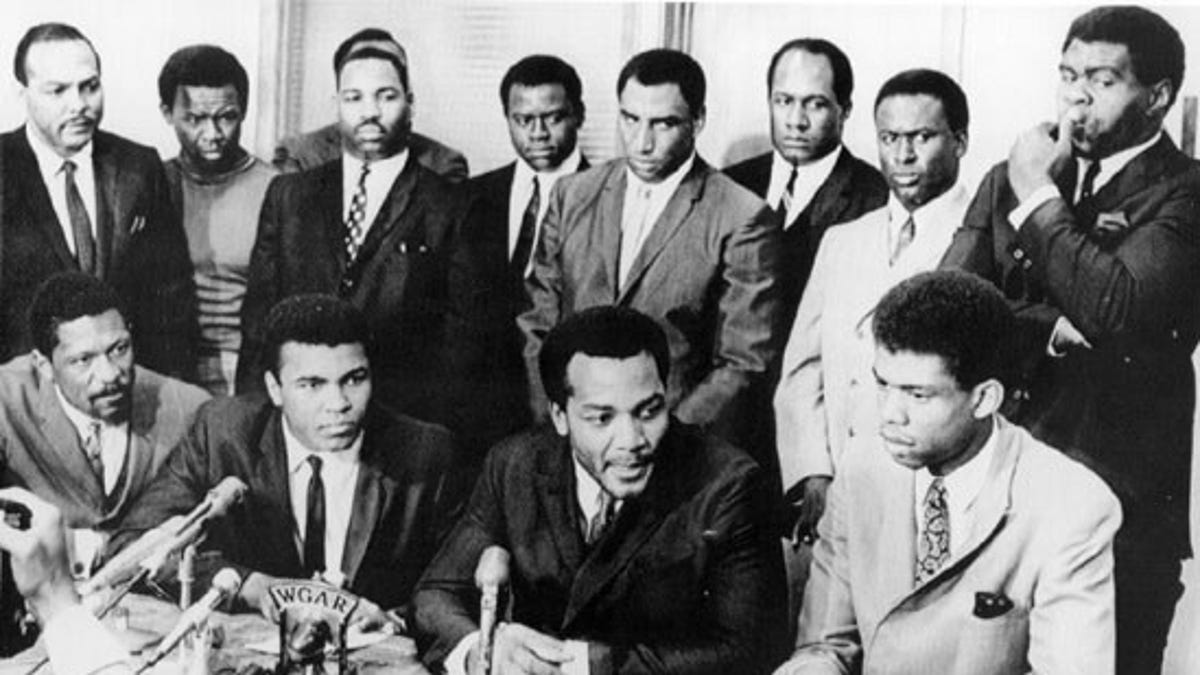What’s next for Nate Bargatze?
USA TODAY’s Erin Jensen caught up with Nate Bargatze on his new book “Big Dumb Eyes” and what’s next after stand up.
Kareem Abdul-Jabbar was working to change the world long before the 7-foot-2-inch center became one of the greatest NBA players ever, and one of the most politically outspoken.
In his 20th book, “We All Want to Change the World: My Journey Through Social Justice Movements from the 1960s to Today” ($30, out now from Crown) the prolific author and one-time Time magazine columnist looks back at America’s protests movements – from free speech and civil rights to the national protests following the murder of George Floyd.
At age 78, the NBA Hall of Famer has seen them all, often first hand.
His personal journey effectively starts in the turbulent summer of 1964 when, as a 17-year-old high school senior, he participated in a journalism program sponsored by Harlem Youth Opportunities Unlimited (HARYOU). When Martin Luther King, Jr. announced a Harlem press conference in June, the son of a jazz-loving transit cop threw up his hand to cover the inspirational leader.
Ferdinand Lewis Alcindor Jr. (Abdul-Jabbar changed his name in 1971 after converting to Islam) felt out of place among the professional reporters, “the serious men in serious suits.”
“I showed my press credentials to the burly men at the door and wandered in, afraid that at any minute, someone would grab me by the arm and drag me out, shouting, ‘Who’s this punk kid pretending to be a journalist?’” Abdul-Jabbar writes. “I was at least a foot taller than everybody else in that room, so I would be easy to find.”
Abdul-Jabbar posted a throwback photo of the meeting on his Instagram page for Martin Luther King Day. He has never forgotten King’s eloquent response to his standard press conference question, even though he was fully “focused on not passing out” as his smiling hero directed his answer to him.
Abdul-Jabbar cites the encounter as the start of his civil rights activism, leaving the meeting with “a renewed allegiance to Dr. King’s optimism about humanity’s innate goodness,” he writes.
That feeling did not last long. In July, he made a spontaneous decision to cover a Harlem rally protesting the shooting death of a fifteen-year-old African American, James Powell, by a white off-duty police officer. When the student journalist emerged from the subway, “the city was already in chaos.”
“I’d never experienced a riot before, and I was terrified,” Abdul-Jabbar writes. “I did what I did best: I ran as fast as I could away from the danger. Spurring me on was the knowledge that I was a pretty big target and that I didn’t know whether a bullet hitting me would come from a rioter or a cop.”
The Harlem riot of 1964, a part of which he witnessed, left him filled with rage and confusion over the effectiveness of King’s message.
Abdul-Jabbar has never stopped searching for answers or using his superstar status to protest injustice. As a rising star at UCLA in 1967, he was personally invited by NFL Browns football star Jim Brown to participate in the Cleveland Summit. Brown gathered prominent African-American voices, primarily star athletes, to discuss and ultimately support heavyweight boxing champion Muhammad Ali’s refusal, a month earlier, to enter the Vietnam War draft.
The press conference photo shows him at the table with his personal hero, Boston Celtics legend Bill Russell, Ali and Brown. Even as one of the serious men wearing a serious suit, Abdul-Jabbar, the youngest invitee, writes that he “never felt more out of my depth.”
“But I had been picked to join the team, and there was no way I would give it less than my all,” he writes.
Abdul-Jabbar has never stopped giving his best or believing in the importance of protests. For the critics, he often cites the national roots of dissent, starting with the 1773 Boston Tea Party, which is “celebrated in schoolroom textbooks as a political protest that helped establish the United States.”
The author still wonders if his work, or his new book, will make a noticeable difference in the arc of history.
“Whether it does or doesn’t isn’t the question. Rather, the question we all face is ‘Have I at least tried to make this country a better, more humane, more compassionate, freer place?’” Abdul-Jabbar writes. “I think I have.”

Leave a Reply